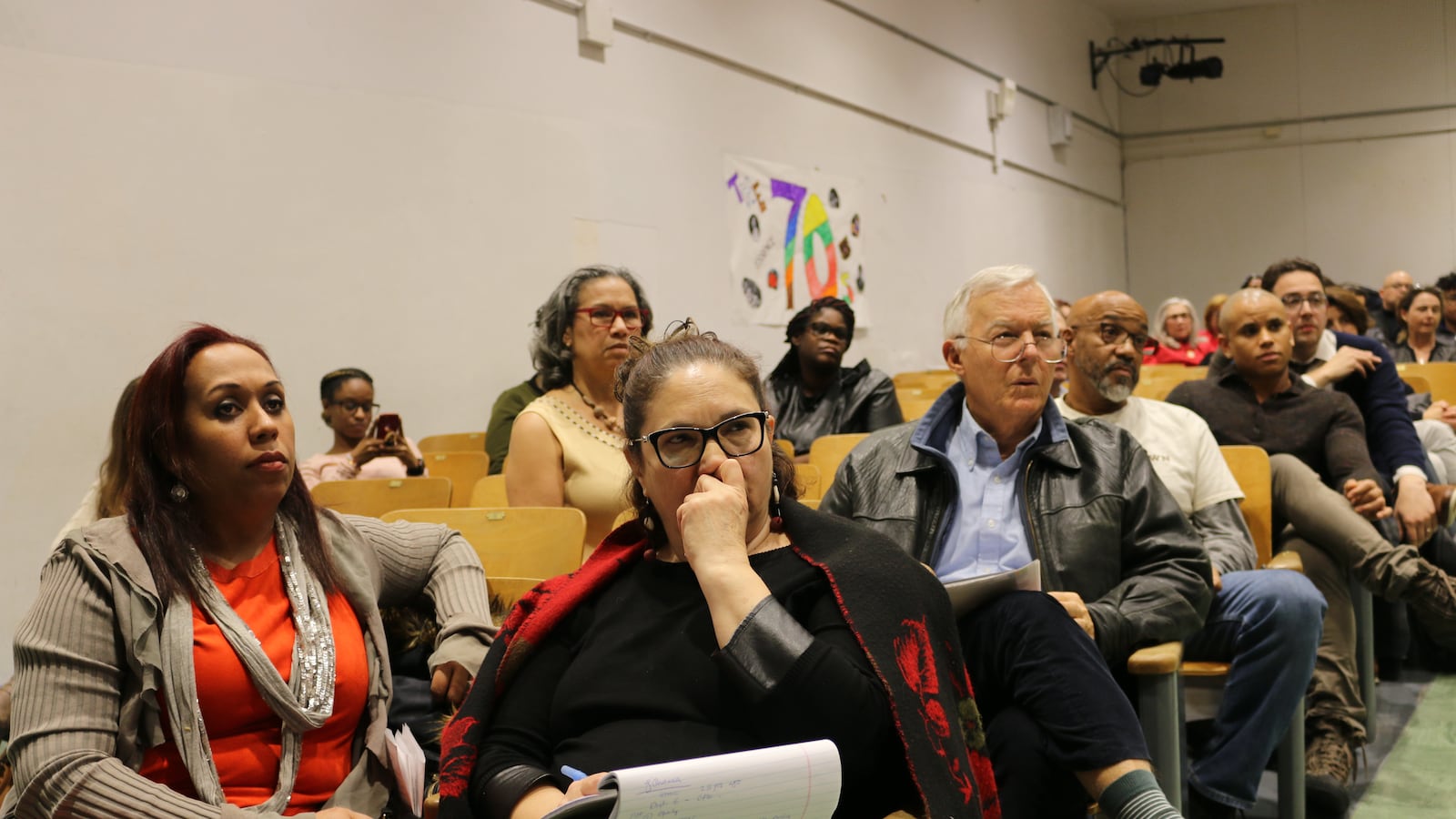Over a hundred parents, activists, and educators packed into a Harlem auditorium Thursday to debate three new charter schools that are vying to open in Manhattan.
Many of them supported the charter expansion.
“As a parent, I want choice,” said a mother supporting Amber Charter School III, one of the schools hoping to open.
“I would appreciate a diverse school, and one that admits students by lottery,” said Jesse Margolis, a parent who supports KIPP’s plan to open a racially-diverse new middle school in Manhattan’s District 3.
But if supporters of charters outnumbered critics at Thursday’s gathering, that balance could soon shift: Just seven new charter schools will be allowed to open in New York City under the state’s current cap, and a newly-minted Democratic majority in the State Senate is less likely to approve upping that number.
That political backdrop didn’t get much mention, though. Instead, arguments for and against the schools hewed to well-worn themes. One one side: that privately managed but publicly funded charter schools siphon off students and money from traditional schools in neighborhoods already saturated with school choices. On the other: that charters schools have a track record of boosting achievement among vulnerable student populations, and parents should be allowed to vote with their feet.
Kim Watkins, the president of the parent council in District 3, where KIPP hopes to launch a new middle school, opposed the move.
“This is not sustainable for us,” she said to applause. There are already 22 middle schools in the district, she said, “and we don’t need a 23rd.”
Many of these options are not racially diverse, though Watkins and other parent leaders successfully pushed for admissions changes designed to spur integration. KIPP officials have said they’re interesting in building on that push for diversity through its new middle school, something of a departure for KIPP, whose schools nationally have almost exclusively served students of color.
Some criticisms of the three proposed charters were directed less at the particular schools on offer than at the charter sector more broadly. Noah Gotbaum, a parent and member of the Citywide Council on Special Education, pointed his criticisms at Success Academy, the city’s largest charter network. Though it does not operate one of three charters being considered, state officials recently found that Success has violated the rights of students with disabilities.
“They’re not getting their services, they’re not getting mandates,” Gotbaum said “It’s happening all over.”
The hearing on Thursday centered solely on the three proposed charters. They are competing for spots with at least 11 other applications before SUNY, one of the two entities in New York that can approve new charter schools. The Board of Regents, the state’s other authorizer, is considering five applications, adding competition for the SUNY charter applications
SUNY is expected to vote as soon as Monday — which could exhaust the current limit in New York City.

